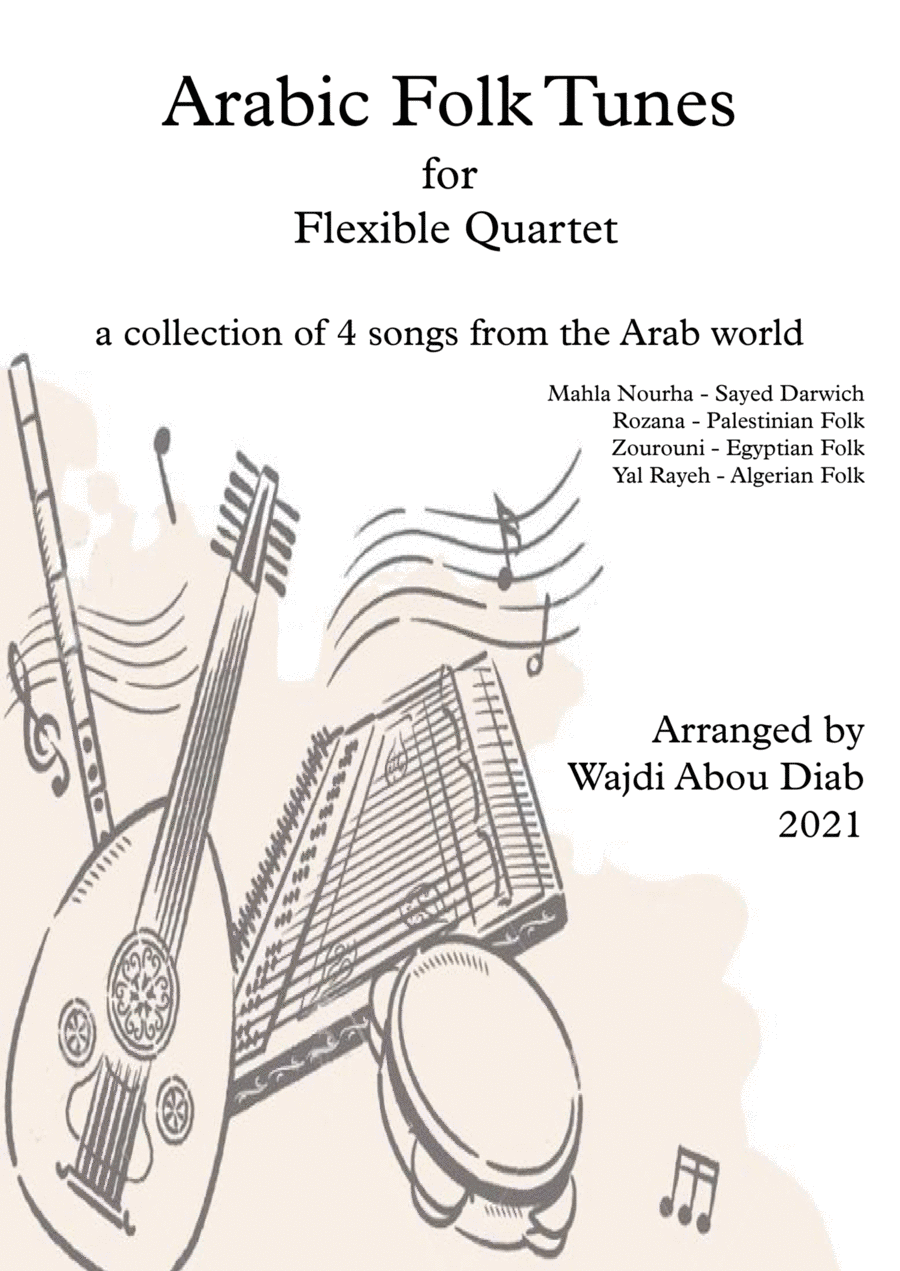Level 2 - Digital Download SKU: A0.1129914 By Wajdi Abou Diab. By Traditional Arabic music, Sayed Darwich, Egyptian , Algerian, Palestinian. Arranged by Wajdi Abou Diab. Chamber,Classical,Folk,Multicultural,Traditional,World. 215 pages. W. Abou Diab #730323. Published by W. Abou Diab (A0.1129914). Arabic folk tunes ā flexible quartet is a collection of four (4) Arabic famous folk tunes arranged for a flexible quartet, that can be performed by any type of ensemble (quartet, or bigger ensemble by doubling parts) include scores and parts for the arrangement of these four famous Arabic songs: Mahla Nourha ā Sayed Darwich A very popular song by the great Egyptian songwriter/singer Sayyed Darwich, in the Egyptian countryside language, describes the simple life in the Egyptian countryside, thatās starts with the shining sun and continues by bringing the milk from the cows and working in the field. Then meet the loved one near the river and flirt together Rozana ā Palestinian Folk The ship called āRosannaā is an Italian ship that Italy sent to Lebanon and Syria at the time of the great famine in 1914, loaded with wheat. But when it arrived, it turned out that it was loaded with grapes and apples, which disappointed the Lebanese and the Syrians. Despite this, the people of Aleppo secured the necessary wheat for the Lebanese, to save them from starvation. Zourouni ā Egyptian Folk An old Egyptian folk tune, with a very catchy melody. Almost every Arabic singer since Sayed Darwich till now made his cover for this song! Starts with an invitation to visit the singer, even once every year, which speaks of how difficult for him to be forgotten, then expresses his fear about feeling the longing. Yal Rayeh ā Algerian Folk A world-famous Algerian folk song was written and sung by the Algerian popular singer Dahmane El Harrachi. The song tells about the suffering of immigrants in estranging homes from marginalization, exclusion, and longing to return to the homeland, and it contains advice for the immigrant to invite him to return to the motherland as migration to foreign homes is not considered a healthy or natural solution for Arab immigrants.
